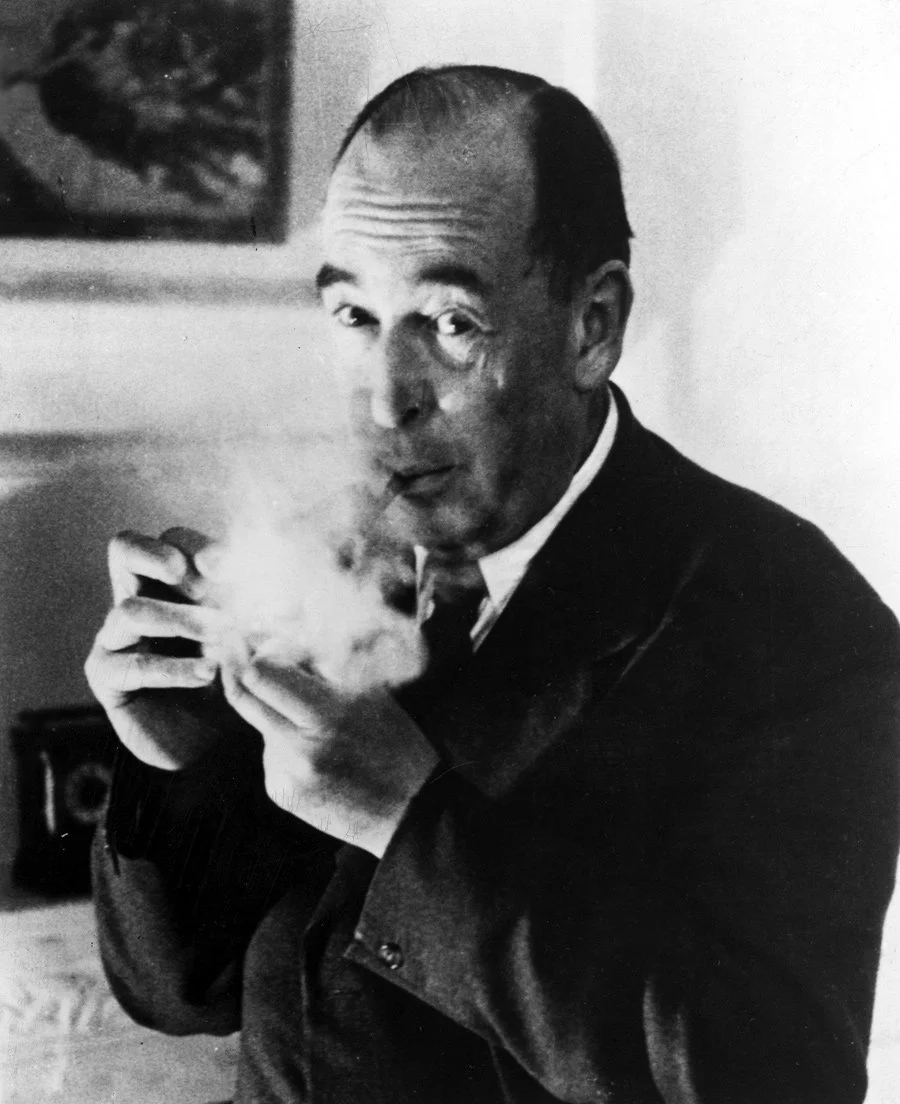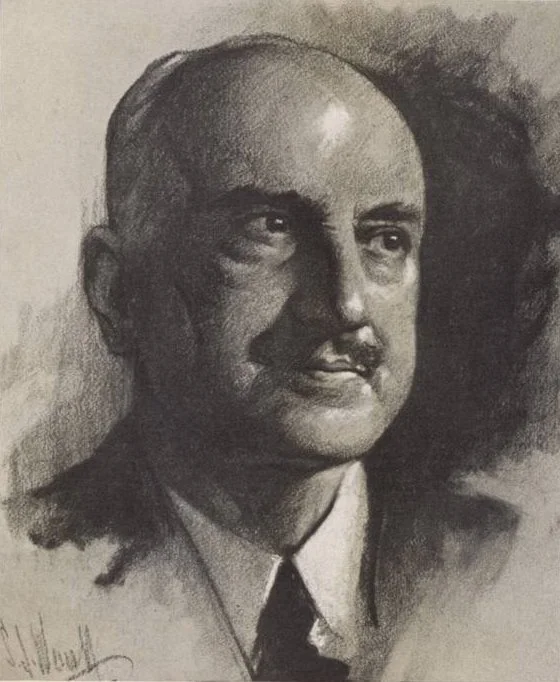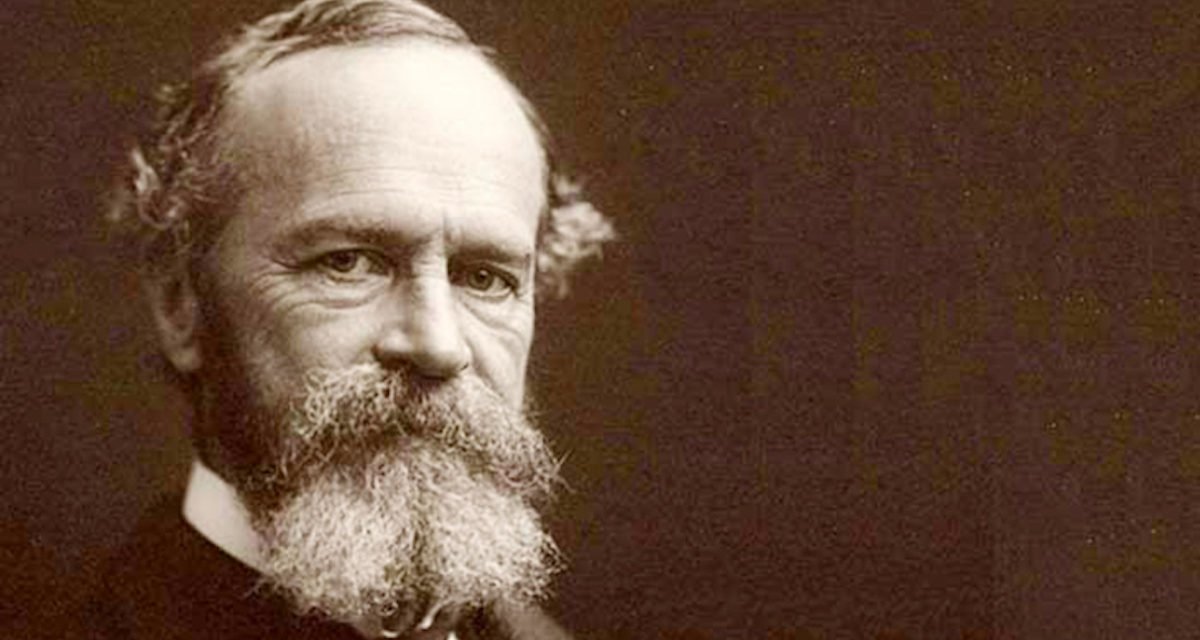Lewis’s 1945 novel “That Hideous Strength” was marketed as fiction, but it read like more like a prophecy. His warning cuts deep for modern readers. The danger is not artificial intelligence itself. The danger, he argues, is what happens when human beings begin to regard tech tools as oracles.
Read More(ANALYSIS) People love to talk about “profound” philosophers. Socrates with his questions. Nietzsche with his hammer. Marx with his systems. But George Santayana rarely gets the same reverence, despite the unsettling precision of his view of modern life. Santayana is hard to place, which may be why he is often skipped.
Read More(ANALYSIS) William James is remembered as the father of American psychology. But for many believers, he holds a different place altogether. He stands as one of the rare modern thinkers who refused to mock faith. He didn’t preach religion, and he certainly didn’t try to dress it up in academic jargon. Instead, he studied it with care, reverence and genuine respect.
Read More(ANALYSIS) Sam Kinison, the famed comedian, is remembered for his intensity, volcanic punchlines and the wild nights that carried him far beyond the boundaries most people never cross. But long before the fame, he lived in a world far more holier. Born into a family of Pentecostal preachers, he grew up where faith was the structure around which life revolved.
Read MoreEvery December, the same chorus returns — pastors, pundits and pious influencers lamenting that Christmas has been “commercialized.” But gift-giving isn’t a betrayal of Christmas. In truth, it’s a reenactment of it. The problem is pretense, not presents. It’s when generosity becomes performance, and the spirit of giving becomes a selfie opportunity.
Read More(ANALYSIS) Some cannabis proponents baptize modern drug culture in ancient authority. This isn’t the first effort to combine cannabis with Christianity — and it won’t be the last. Proverbs warns again and again: “Wine is a mocker, strong drink a brawler.” And Ephesians drives the point home: “Do not get drunk with wine… but be filled with the Spirit.”
Read More(ANALYSIS) Street protests spill into riots. Universities host intimidation campaigns. Digital mobs savage anyone who dares step outside the script. Across America, political anger is spilling into the open, and on the left it increasingly takes a violent shape. What begins as dissent can tip quickly into destruction.
Read More(ANALYSIS) This month marks 181 years — on Oct. 15, 1844 — since the birth of a man with a magnificent mustache. That man is Friedrich Nietzsche. So often cast as the very symbol of atheism, the German philosopher is widely misunderstood. To read him as a cheerleader for unbelief is to miss the point entirely.
Read More(ANALYSIS) The author of “Infinite Jest” grasped something that makes secular intellectuals squirm: People must worship something. Take away God and they don't become enlightened — they become slaves to smaller gods. Wallace witnessed this transformation with clarity. His characters bow before drugs, screens, achievement — anything promising relief from the weight of existence.
Read More(ANALYSIS) Leo Tolstoy spent half a century avoiding arguably the most essential truth of them all: Everything comes to an end. If that’s true, which it is, what’s the point? He’d conquered every peak the world could name. “War and Peace” made him immortal. “Anna Karenina” made him rich. Critics worshipped him in tongues he didn’t even speak. Russian aristocrats name-dropped him like Scripture.
Read More(ANALYSIS) This summer’s “Superman” is more than just another superhero movie. James Gunn's latest, starring David Corenswet, offers something different: A return to the character's core — not just as a cultural icon, but as a figure imbued with spiritual and moral gravity. Because Superman has always been religious. Maybe not explicitly, but unmistakably.
Read More(ANALYSIS) Christian transhumanism sounds like a contradiction — because it is. For years, transhumanism has been tied to atheism. Man becoming god. Machines replacing miracles. But now, a strange movement is growing in America. Some believers argue that resurrection and uploading your mind aren't so different. That eternal life through tech is an upgrade, not heresy.
Read More(ANALYSIS) Throughout his career, you see the outlines of a man burdened by the myth he helped build. A man who stared down America’s worst tendencies and tried to warn us, only to watch them metastasize. And in that exhaustion, there’s something quietly Christlike — not in purity, but in genuine suffering.
Read More(ANALYSIS) Bono has never been backwards in coming forward, especially when it comes to God. He doesn’t mumble about “spiritual energy” or dodge the name of Jesus. He says it straight: “The Son of God.” He talks about Christ carrying his shame, not because it sounds poetic, but because he believes it. His faith isn’t necessarily neat or polished, but it's real.
Read More(ANALYSIS) This is not about rejecting technology. This is about resisting moral drift. It’s about remembering that not every innovation is an acceptable invitation. The church should be discerning enough to see that just because crypto is legal doesn’t make it righteous. If God’s messengers hope to offer moral clarity, they can’t do so while pocketing digital currencies that may be soaked in sin.
Read More(ANALYSIS) Sainthood was earned, if not in blood, then in extreme humility and absolute submission to Christ. It was not fast. It was not fashionable. And it certainly was not a reward for being beloved by the world. That idea now lies on the operating table, gasping for breath. And the latest scalpel to slice deeper is the Vatican’s push to canonize Antoni Gaudí. Let’s not insult our own intelligence here.
Read More(ANALYSIS) This may be unsettling to those who’ve invested in the idea of a steadily secularizing globe, but the numbers don’t lie. In the long run, the groups that reproduce tend to shape the narrative. If religion continues to dominate global culture through the 21st century, it won’t be because it won a war of ideas. It’ll be because believers have more babies.
Read More(ANALYSIS) Although the Ayatollahs have responded with bullets, prison cells, and executions, sheer force can only do so much against an idea whose time has come. The regime is losing its grip. The Islamic Republic has long ruled through force and fear. Yet, as disillusionment spreads, hope takes root. In this context, Christianity is not just a religion. It is an act of defiance.
Read More(ANALYSIS) If she were still alive, March 25 would mark Flannery O’Connor’s 100th birthday. This milestone invites us to explore the many ways in which her Catholic faith shaped her literary genius. O’Connor was born in Savannah, Georgia, where Protestantism was the norm. Her decision to follow Catholicism wasn’t just a personal faith choice, but a key part of her identity and a driving force in her writing.
Read More(ANALYSIS) If Musk is anything, it’s audience-savvy. To get to the position he now finds himself in, aligning with Christian values wasn’t just wise, it was necessary. With the MAGA base increasingly rallying against progressive secularism, Musk’s newfound faith acts as a bridge to this vital demographic. Cynical? Absolutely. But the wealthiest man in the world didn’t build his empire by ignoring optics.
Read More



















